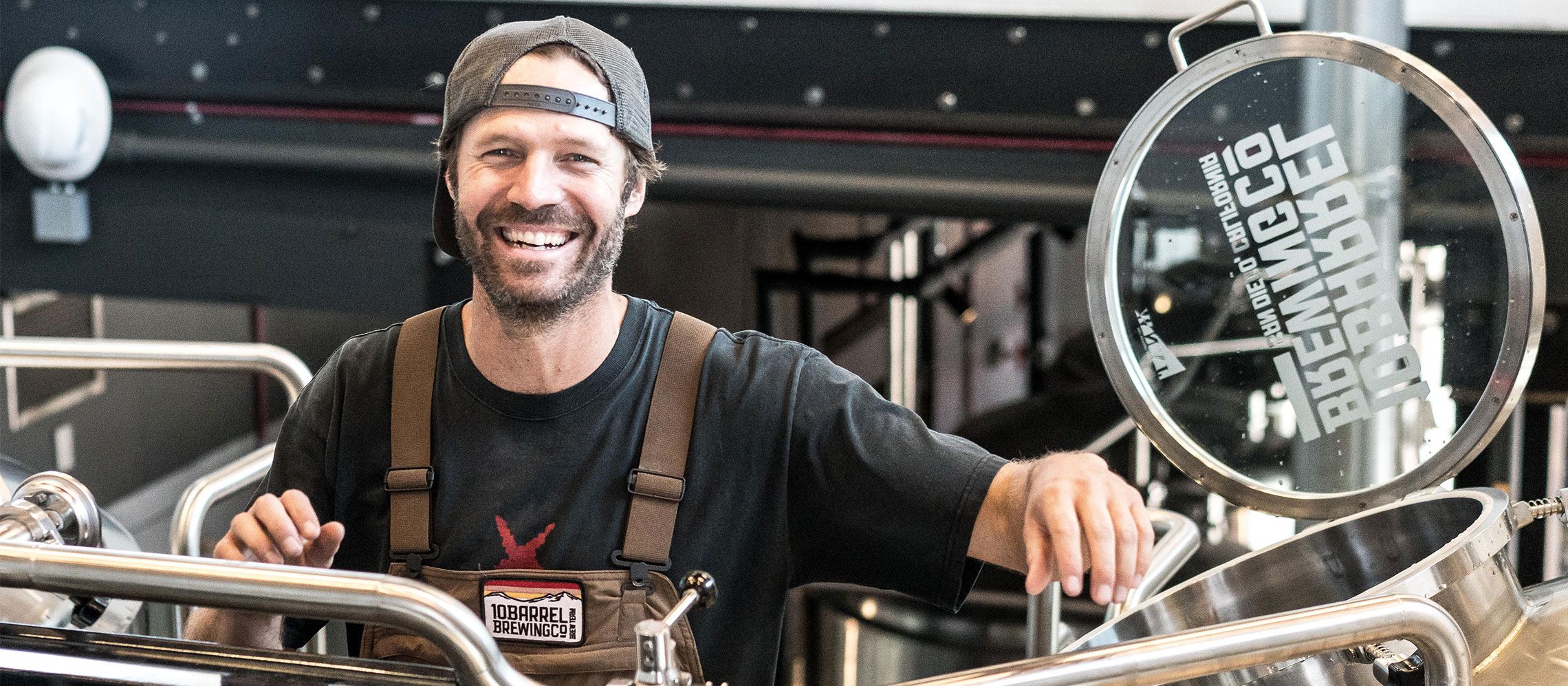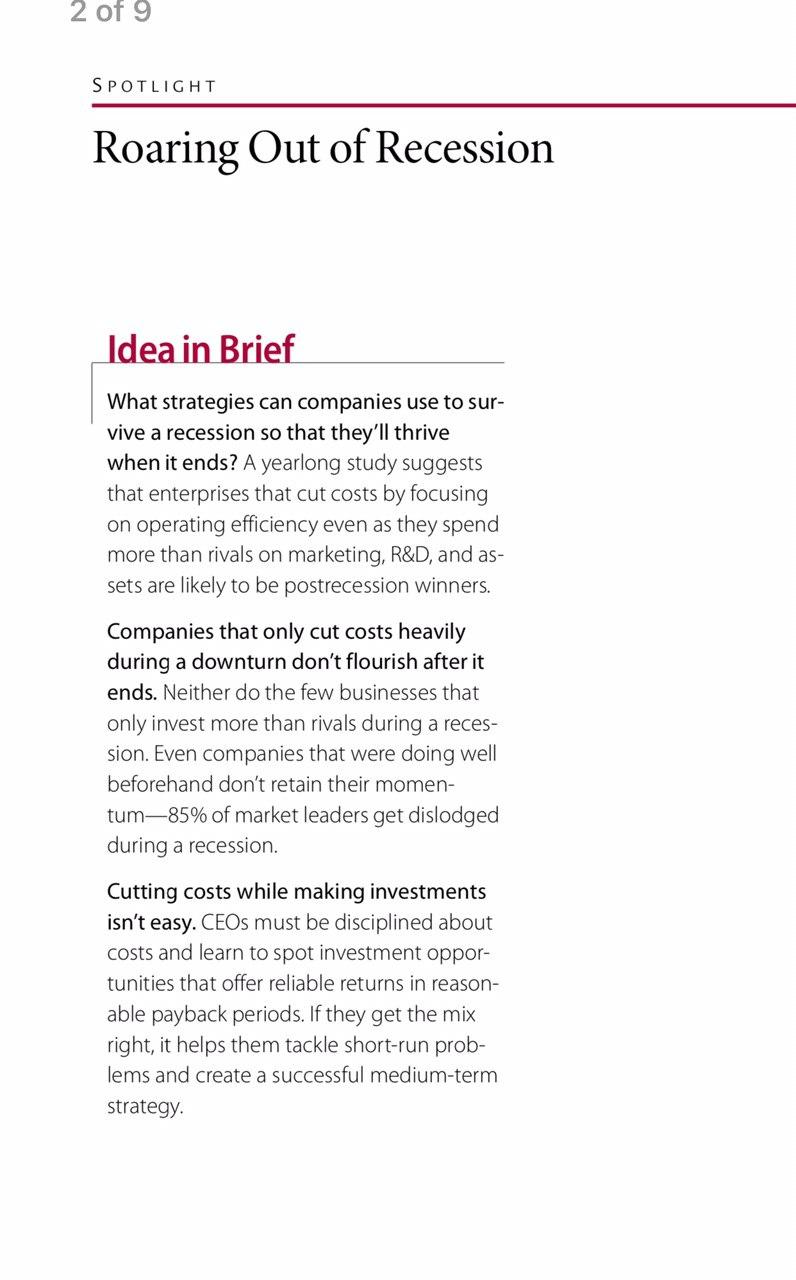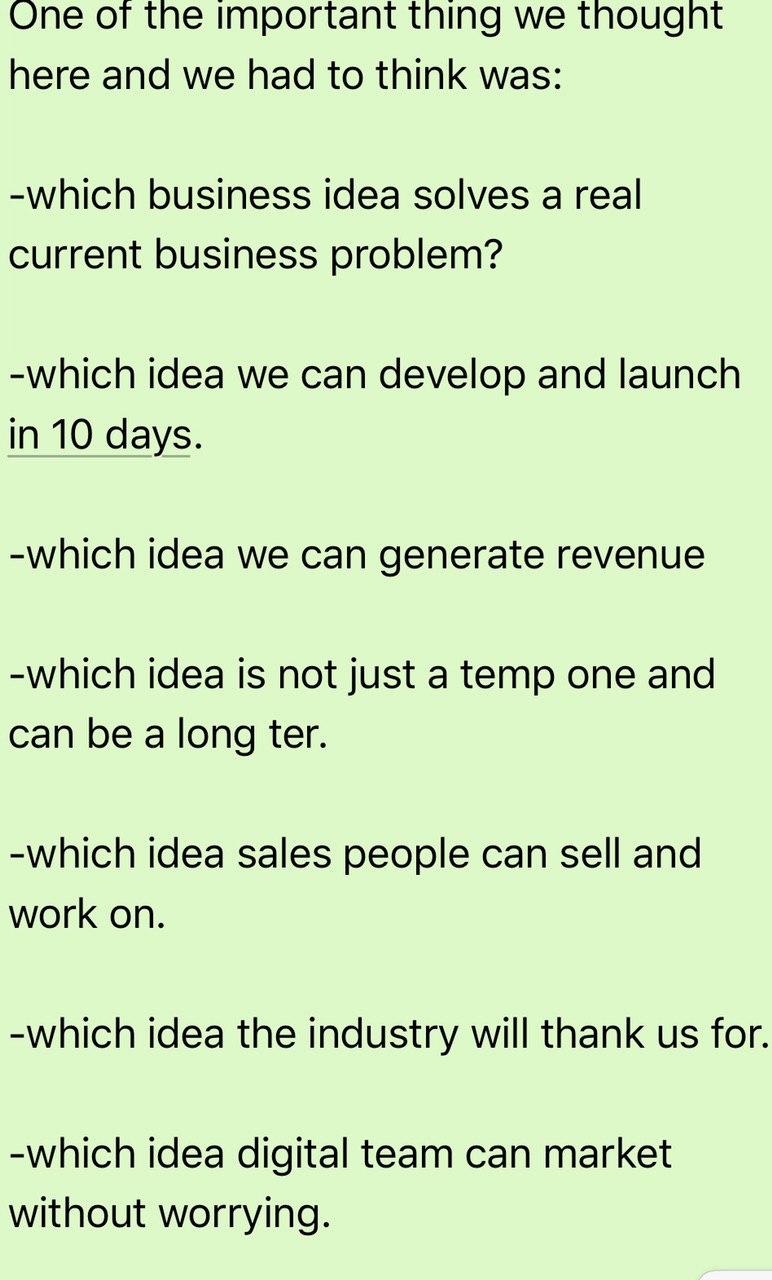Submission Deadline
28 February 2026
Judging
Date
23 March 2026
Winners Announcement
22 April 2026
28 February 2026
23 March 2026
22 April 2026

During times of crisis, the thing that businesses need to focus on is what to do now, and what comes next. You can’t sit with your hands tied, because in the end, you need some sort of revenue flowing in. For that, you might have to come up with new ideas and put them to work, but how are you going to do that without taking up your costs? And how are you going to be a sustained company?
We’re breaking down episode 3 of the COVID-19 Business Adapt podcast, in which host Sid Patel, CEO & Founder of Beverage Trade Network talks about what type of company you are, and how to think up an idea today.
Every company works in its own way, and the question is, is there a right way to do things? Or what is the better way to do things?
Harvard Business Review conducted a study under the last recession, which included about 4700 businesses including big, small, and medium-sized companies. The study categorized businesses into 4 different types of companies, namely:
Prevention focused
Promotion focused
Pragmatic
Progressive
Let’s break this down and see what type of company you are, and this will help you
Prevention focused companies are those that predominantly take up defensive stands, and are mainly concerned about minimizing the losses and risks.
Promotion focused companies are those that go on offence with unrealistic optimism and continue to provide benefits without cutting cost. So this is when companies are being too optimistic.
Pragmatic companies combine defence and offence strategies, but not in the right way. For example, pragmatic companies would usually have a high dependence on layoffs to keep moving.
Progressive companies are those that work on both the defensive and offensive side together, and in the right way. This means that they reduce costs, and make decisions not only for the short term but those that will also be beneficial during the post-crisis period. A good example would be being focused on operations and efficiency rather than laying off employees to cut cost.
The research found that companies with a progressive mindset tend to outperform others. “An analysis of the stock market performance of the companies that use progressive strategies reveal that they can also ride the momentum after a recession is over. Their approach doesn’t just combat a down term, it can lay the foundation for a continuous success once the down term ends“ the study stated.
[[relatedPurchasesItems-40]]
This is basically because they think of the long term. The research said that after a recession, progressive companies outperform pragmatic companies by almost 4% in sales and more than 3% in earnings before interest.
After knowing this, you might want to take the progressive way of working. It’s best to come up with ideas that will not increase your cost a lot, but will also bring in revenue - and to do that, you might have to go back to your idea pad. You know, that little place we all put our ideas in but never work on them?

We all have ideas written down somewhere or another, and this is the perfect time to bring out that idea pad and start working again. It’s a good time to brainstorm and start up those things you never got around to do.
Now of course, you have a bunch of ideas, but how are you going to qualify the idea to work? Here’s a checklist that you can use to be sure of it:

Does your idea meet all the checks above? If yes, then go ahead and launch your idea. We are all worried about how the company is going to look like after everything, so that is why you need to launch an idea that is solving a problem.
The crisis has put everyone in a position where being a regular salesperson isn’t going to help, and that is why you need to come up with things that can solve a current problem. A great example is grocery stores. Grocery stores aren’t salespeople right now, they are a need - and that’s why they are working.
“For sure I am taking a progressive company approach because I don’t want to build the company again when the rebound is over. So layoff is the last thing I’m doing. I don’t want to fire anyone“ said Sid in the podcast.
“Of course we have a timeline for things, so for example, if I don’t match my revenue to my expense by the 15th of May, then I will be doing a 15% layoff” he added.
What Sid explains is that, instead of letting go of staff immediately and focusing on the defensive side of things, he went with the progressive strategy, that will help in retaining staff. For the next 30 days, the company is going to be working harder than ever, just to make sure that layoffs wouldn’t take place, or resources wouldn’t have to be cut down.
“So, 30 days in offence with full force, new ideas, new revenue, and if I’m able to match my revenue to my expense then I’ll be able to ride this wave on a break-even basis and thrive when things open up as I’ll have new ideas giving more revenue, and all old works will be back up, bringing in revenue,” Sid said as he explained his way of handling the company during the pandemic.
What Beverage Trade Network is doing is bringing up a new event in China in November, because China is definitely going to be a fully operational market once again by October/November. China is doing it’s first big show, the Chengdu Wine Fair in May - and that is a way of them saying that we’re back.
“If large events are opening up, that means the market is ready to be back. So we are aiming to focus our sales in China. Direct to consumer is here to stay so we are adding those media assets and platforms, which will help our current customers like wineries, breweries, and distilleries. This will help them get their message to the consumers because that’s the channel that we think will stay in the near future, and along the times as well”
Beverage Trade Network is also launching a new platform called Get Drinks Delivered. Get Drinks Delivered is an online platform that helps consumers discover and support small business owners that are open to direct deliveries.
Right now people are looking for deliveries, stepping out has become a very rare occurrence, as it should be. However, businesses that are delivering deserve the support in doing so during the COVID-19 outbreak.
Everyone is looking for delivery, no one is stepping out, and with Get Drinks Delivered, those of you who are delivering can easily be recognized by customers. It’s a simple listing for the user, and they have your details on their screen from which they can easily contact you and place an order. It’s a simple solution to a big problem, and this is going to be one of the major things bringing in revenue during this time.
“For us, Get Drinks Delivered has ticked off the checklist perfectly, and that is why we decided to go ahead with it. There’s no over the top costs involved, it’s just the time of my team, and that is what is important. Along with that, it is also solving a huge industry problem just by working as a team and focusing on what the industry is looking for” Sid shared.
So in the end, what you need to do right now is work the progressive way, come up with new ideas, and find ways to help solve a problem that the industry will be thankful for, and will also bring in revenue for your company now, and in the future as well.
Show your beers where it matters. Get your products tasted by top buyers and experts at the London Competitions — enter now.